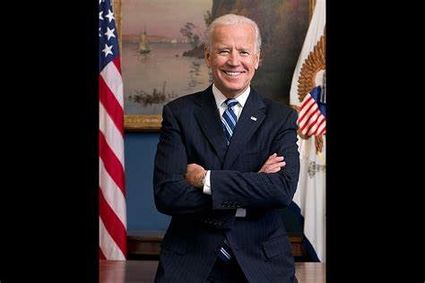Gov. Gretchen Whitmer signs supplemental funding to support COVID-19 recovery plan
March 11, 2021
LANSING - Today Governor Gretchen Whitmer signed legislation that supports the COVID-19 recovery plan she sent to the legislature in January. It includes key provisions of the governor's MI COVID Recovery Plan, including a $2.25/hour wage increase for direct care workers, $283 million in federal emergency rental assistance to help ensure people can stay in their homes, up to $110 million in federal funding for vaccine administration, and up to $555 million in federal funding for testing and tracing.
"I think it's great news that we've been able to get some of the federal funding available to us appropriated, including passing two of my key proposals to provide a wage increase for direct care workers and increased funding to help expand vaccinations for Michiganders who are 50 years old or older," said Governor Whitmer. "However, the reality is that there is more work to be done and there are still billions of dollars in federal funding that we need to get out the door to help businesses and families across the state. The bills I received were not negotiated with me or my administration, and I continue to call on the legislature to ensure that we work together to ensure we maximize every penny that is available. There were problems in the bills that I had to veto, and I expect the legislature to step up to fix the bill to allocate all of the money so we can get back to normal as soon as possible."
State Budget Director David Massaron also sent a letter to the appropriations chairs in the House and Senate, asking again for a joint meeting no later than Friday, March 12 where formal negotiations can occur, with the goal of getting the remaining more than $2 billion in federal funding appropriated. In the letter, Director Massaron shares his desire to provide meaningful help to businesses impacted by the pandemic.
"We are on a good path to recovery and our key metrics and numbers are improving, but we need to put the rest of the available federal funding to work, much of it aimed at helping businesses and aiding their recovery," added Governor Whitmer. "The light at the end of the tunnel is getting brighter and I thank every Michigander who has done their part in the response to the pandemic."
As part of the MI COVID Recovery Plan, Governor Whitmer proposed $665 million to expand the state's vaccine and testing programs, and $2.1 billion for schools. Unfortunately, the legislature inserted boilerplate that aims to block expenditure of these funds unless the governor signs separate legislation undercutting Michigan's pandemic response. The governor has called on the legislature to return to the table to fully appropriate the more than $2 billion in unused federal funds.
Governor Whitmer proposed fully allocating $622 million for rent and utility assistance, but the legislature only provided $283 million – withholding $339 million that was meant to keep families safely in their homes and provide direct aid to landlords. The COVID Emergency Rental Assistance (CERA) program replaces the popular Eviction Diversion Program (EDP) MSHDA launched in July 2020, which helped approximately 16,000 households across the state avoid eviction and get current on owed rent. MSHDA will administer CERA through its statewide network of Housing Assessment and Resource Agencies (HARAs), which will be responsible for working directly with tenants and landlords so that the rental arrearages are paid and housing stability is preserved. For more information, visit Michigan.gov/CERA.
Governor Whitmer also proposed fully allocating $2.7 billion to help residents feed their families, but the legislature only provided $600 million – withholding $2.1 billion in food assistance through the federal Supplemental Nutrition Assistance Program (SNAP). Michiganders can apply for food assistance by going online to http://www.michigan.gov/MIBridges.
"Unfortunately, the legislature tried to prohibit expenditure of funds for vaccine distribution and the return to school unless the governor signs legislation stripping powers from the executive branch. Rather than these political games, we need to focus instead on how to best help businesses and individuals most impacted by the pandemic," said Director Massaron. "Vetoes were necessary and now we need to collectively refocus efforts on the best way to get resources out the door to speed our recovery from the pandemic. I again encourage the chairs of the appropriations committees to accept my offer to get in a room and figure out how we can effectively align our resources with the need










Reader Comments(0)